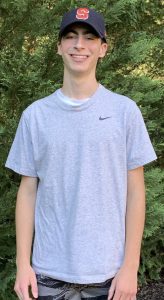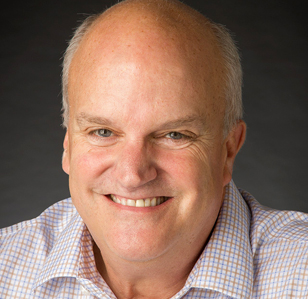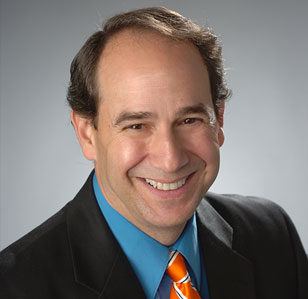Course Overview
In this pre-college summer course, modeled after Syracuse University’s COM 117: Multimedia Storytelling, high school students will learn to be a Multimedia Journalist (MMJ). They will shoot, edit, produce, write, and voice their own broadcast/online news stories. Synch classes will have an open environment that creates curiosity, an informative heart, and a (potentially) happy ending. Students will learn the difference between covering a story and storytelling – storytelling that connects the viewer to the subject. Stories that matter more to them because they are emotionally invested in the content, the characters, and how it affects their lives.
Students will also be doing the same for a public service announcement(s), where they will work with actors to make a 60-second “commercial” for the public good. These will help “sell” an idea for a charitable or social cause. Examples include: “Don’t Text and Drive,” “Vaping Kills, or “Be Kind to Each Other.” The message will be truthful and compelling. Guest speakers will help with scriptwriting, voice, interviews, and more.
All students who successfully complete the course will receive a Certificate of Completion and have the opportunity to request a Syracuse University noncredit transcript.
Learning Objectives
- To turn students into storytellers of broadcast journalism.
- Explore why journalism matters now more than ever.
- Tell a story through writing, video, sound, and heart.
- Learn Adobe Premiere and use smartphones to record news video and sound.
- Learn techniques for a great interview, which makes for a great story.
- Explore what constitutes a story: how to find it, how to produce it, and how to complete it.
- Learn how to build emotional impact and “gold coin” rewards for the viewer along the way.
- Most of all, students will learn the profound difference between covering a story and storytelling.
Course Information
Course Prefix and Number: SCN 073
Format: Online
Eligibility: Students must be of rising high school sophomore, junior, or senior status – or a 2025 high school graduate.
Credit: Noncredit
Grading: Pass/Fail
Cost: $1,995
Program rates are subject to change and will be approved by the board of trustees. Discounts and scholarships are also available.
Program Information
Summer College – Online: Explore college life before stepping foot on campus! High school students can enroll in a college-level course, pursue their academic interests, and meet likeminded students in daily virtual events and activities.

“In Broadcast & Digital Journalism, I developed a working knowledge in the editing of Adobe Premiere Pro, crucial interview styles, techniques, and approaches, as well as the importance of compelling storytelling and how these respective skills will enable me to achieve success both inside and outside of the classroom. Most importantly, I developed a relationship with many of my peers, which I found immensely comforting as I sometimes become anxious during remote instruction. I was surprised and comforted that I could easily establish and develop a relationship with my professor in a remote setting. I plan to use these skills and knowledge to pursue a degree in journalism.”
— Tyler M., Summer College – Online Broadcast and Digital Journalism Student, 2020
Course Dates and Details
| Program | Course Dates | Synchronous Class Time (Eastern Time) | Credit/Noncredit |
|---|---|---|---|
| Summer College – Online | 3-Week Online Session II: Monday, July 28 – Friday, Aug. 15, 2025 | MTWTh; 6-8 p.m. | Noncredit |
Course Requirements
Technology Requirements
- Laptop or desktop computer with a webcam and mouse
- Reliable internet access
- A space conducive to taking an online class (without distractions)
Required Supplies
- Students will need to purchase a spiral notepad.
Student Expectations
Journalism is a deadline centric profession. Even though this course will be held online, deadlines still matter. Students are expected to complete work on their own as well as attend live classes on time. If you arrive early, you are on time. If you arrive on time, you are late. I expect each student to work well and be courteous of other students and follow proper netiquette.
Within a three-week span, students will be learning not only skills for TV News, but ethics, time management, and how to find a story. Students will stay off their phones during class unless previously permitted. Students will work with their assigned Instructional Assistant with as much respect as their professors.
Special Guests
- Mel White – Professor of Practice, Advertising
- Shelvia Dancy – Professor of Practice, Broadcast & Digital Journalism
- Al Tompkins – The Poynter Institute’s Senior Faculty for Broadcasting and Online
End Event
During the end event, students will share their final projects as well as potential “Director’s Cuts” that typically are longer in length than their original assignments. Blooper reels will also be shown in the same presentation.
Faculty Bios
Les Rose – Professor of Practice: Broadcast & Digital Journalism

Les Rose’s 38-year career in broadcast journalism included 22 years with CBS National News Network as a photojournalist and field producer. He spent seven years working with CBS News correspondent Steve Hartman on the series ‘Everybody Has a Story’. Rose has been honored with a national Edward R. Murrow Award and five Emmy Awards. He earned a bachelor’s degree from the University of South Florida and a master’s degree from the University of Nebraska-Lincoln.
Keith Kobland

Keith Kobland is a professor of Broadcast and Digital Journalism (BDJ) at Newhouse, teaching classes in broadcast news, journalistic ethics, and a morning news class known by students as MOTH (BDJ 560, Mornings on the Hill). His current role also involves university communications where Keith works with a variety of media including student media, along with local, regional, and national print and broadcast news reporters and content producers. Before his time at Syracuse U, Keith served as a long-time award-winning local news producer, anchor, and reporter at WTVH (now CNY Central) and WSYR TV.
